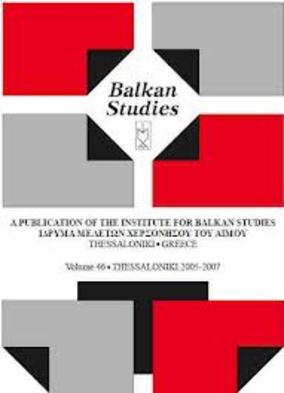The Greek minority school textbooks during the Enver Xoxha period
Part of : Balkan studies : biannual publication of the Institute for Balkan Studies ; Vol.34, No.1, 1993, pages 85-104
Issue:
Pages:
85-104
Section Title:
Articles
Author:
Abstract:
This study examines exclusively the school textbooks used by the Greekcommunity and written in Greek. These texts were selected from three politicallydistinct periods. The first group is composed of texts used in the mid1950’s, when Albania was a fully integrated satellite of the Soviet Union. Thesecond group includes books published between 1970 and 1972, a period whenAlbania had disassociated itself from the Soviet Union and had been drawninto the Chinese orbit. The last group of books, which is also the largest, werepublished in 1973-1975. This was the period when Albania gradually brokeaway from China, and the ice between Albania and Greece began to melt.The study, which has examined more than thirty school books, revealsone positive and one negative signpost for the future of the Greek minority;The positive element is that the danger of linguistic assimilation, at least inareas where the minority was recognized and where its children had the rightto primary education within their own community, was neither great norimmediate. The negative element is that implementation of the theory of adistinct, self-existent ethnic group, using the Greek language but with noconnection with Greece and the Greek world, could eventually, especiallyin conjuction with the proscription of religion, render problematical thesurvival of the Greek minority in Albania. However, it is fortunate that politicaldevelopments since 1990 have halted the decline of the minority beforeit could vanish. With the overthrow of the communist regime, the Greek communitywas offered a renewed dynamic lease of life in the land where theirforefathers have dwelt for centuries.
Subject (LC):
Keywords:
Ελληνικά σχολικά βιβλία, Περίοδος Ενβερ Χοτζα
Notes:
A Greek version was presented in a lecture organized by the Greek Committee ofthe International Association of Southeastern European Studies (Athens) and will shortlyappear in its publication series.




